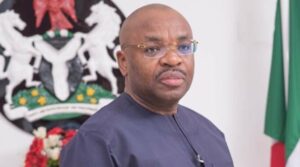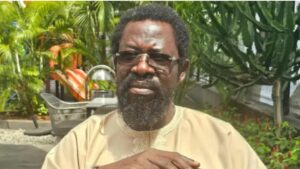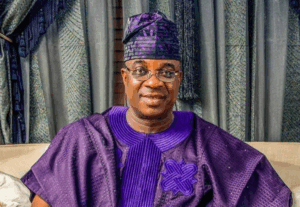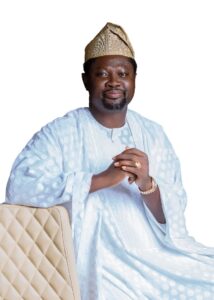Shadow Government: Court to deliver judgement Sept 29 in DSS suit against Utomi
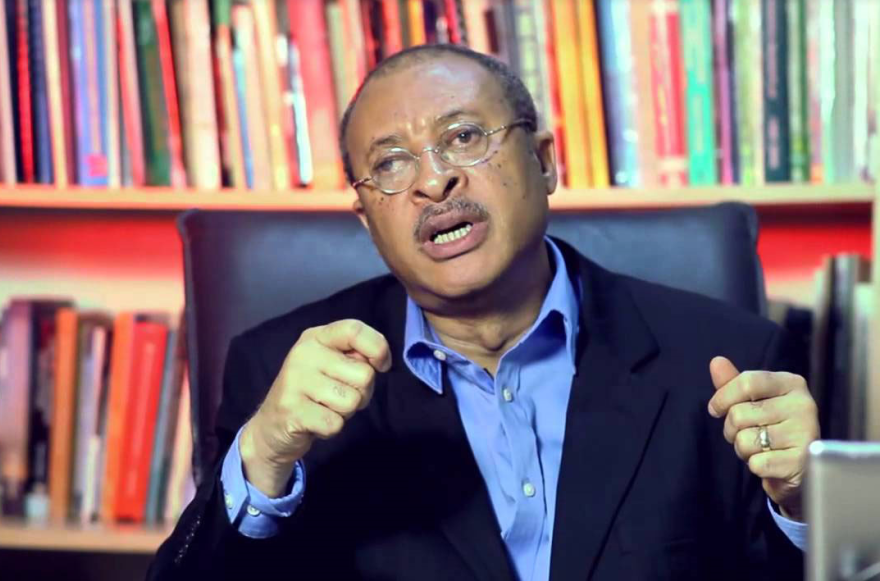
The Federal High Court, Abuja has fixed September 29 to deliver it’s judgment in a suit filed by the Department of State Services (DSS) against the 2007 presidential candidate of the African Democratic Congress (ADC), Patrick Okedinachi Utomi (also known as Prof. Pat Utomi) over his announced plan to establish a shadow government in the country.
The trial Court Judge, Justice James Omotosho fixed the date on Thursday, after hearing the legal opinion of the law professors and Senior Advocates of Nigeria (SANs) he invited as friends of the court to offer their opinion regarding the suit filed by the DSS against the move by Pat Utomi to constitute a “shadow cabinet” in the country.
Justice Omotosho had asked the law experts, from the six geopolitical zones in the country to assist the court with their legal opinion on the case, in view of its national interest.
After the senior lawyers, Joseph Daudu, a former President of the Nigerian Bar Association (NBA), Ahmed Raji, Dakas C.J Dakas (represented), Joe Kyari Gadzama, Yakubu Maikyau, also a former NBA President and Miannaya Aja Essien, who are all Senior Advocate of Nigeria invited as friends of the court shared their legal opinion on the matter, counsel to the DSS, Akinlolu Kehinde, SAN urged the court to grant all the reliefs sought by the plaintiff.
“All we are asking is for the defendant to be stopped in his act in view of the state of insecurity in the country. We must not sit and watch crisis grow without doing anything”, the DSS counsel stated.
Prof. Mike Ozekhome, SAN who represented Pat Utomi, in his submission, said, in all the issues canvassed by the plaintiff, there is nothing that, the defendant has done to warrant the legal action against him.
He said, “The defendant has not committed any act of criminality. There is no where in their affidavit to show that any Nigerian is confused with the term, shadow government.
“The defendant has done nothing to merit the invocation of Section 45 of the 1999 Constitution of the Federal Republic of Nigeria, as amended.
“The defendant is merely gathering Nigerians of like minds on how to move the country forward. He has not exercised any judicial, executive or legislative power”, Ozekhome submitted and urged the court to dismiss the case filed against his client.
In the suit marked: FHC/ABJ/CS/937/2025, with Utomi as the sole defendant, the DSS is contending that the move by Utomi was intended to create chaos and destabilise the country.
The DSS argued that, not only is the planned shadow government an aberration, it constitutes a grave attack on the Constitution and a threat to the democratically elected government that is currently in place.
It expressed concern that such a structure, styled as a “shadow government, if left unchecked, may incite political unrest, cause intergroup tensions and embolden other unlawful actors or separatist entities to replicate similar parallel arrangements, all of which pose a grave threat to national security.”
The plaintiff wants the court to declare the purported “shadow government” or”‘shadow cabinet” being planned by Utomi and his associates as “unconstitutional and amounts to an attempt to create a parallel authority not recognized by the Constitution of Nigeria.
The DSS is also seeking a declaration that, “under Sections 1(1), 1(2) and 14(2)(a) of the Constitution, the establishment or operation of any governmental authority or structure outside the provisions of the Constitution is unconstitutional, null, and void.”
The plaintiff wants the court to issue an order of perpetual injunction, restraining Utomi, his agents and associates “from further taking any steps towards the establishment or operation of a ‘shadow government,’ ‘shadow cabinet’ or any similar entity not recognized by the Constitution of the Federal Republic of Nigeria, 1999 (as amended).”
Among the grounds on which the plaintiff is hinging its prayers includes that, Section 1(1) of the Constitution declares its supremacy and binding force on all persons and authorities in Nigeria.
It added that Section 1(2) prohibits the governance of Nigeria or any part thereof except in accordance with the provisions of the Constitution.
According to the DSS, sovereignty belongs to the people of Nigeria, from whom government through the Constitution derives all its powers and authority, contending that Utomi’s proposed shadow government lacks constitutional recognition and authority, thereby contravening the aforementioned provisions.
The plaintiff further stated, in a supporting affidavit that, it has monitored, “through intelligence reports and open source material, public statements and interviews granted by the defendant, Prof Patrick Utomi, in which he announced the purported establishment of what he termed a ‘shadow government’ or ‘shadow cabinet,’ comprising of several persons that make up its ‘Minister.’
“The ‘shadow government’ or ‘shadow cabinet’ is an unregistered and unrecognized body claiming to operate as an alternative government, contrary to the provision of the Constitution of the Federal Republic of Nigeria, 1999 (as amended).
“The defendant (Utomi), through public statements, social media, and other platforms, has announced the formation of this body with the intent to challenge the legitimacy of the democratically elected government of Nigeria.
“While inaugurating the ‘shadow cabinet’, the defendant stated that it is made up of the Ombudsman and Good Governance portfolio to be manned by Dele Farotimi; the policy Delivery Unit team consisting of Oghene Momoh, Cheta Nwanze, Daniel Ikuonobe, Halima Ahmed, David Okonkwo and Obi Ajuga: and the council of economic advisers.
“Based on the intelligence gathered by the plaintiff, the activities and statements made by the defendant and his associates are capable of misleading segments of the Nigerian public, weakening confidence in the legitimacy of the elected government, and fuelling public disaffection,” it said.
The DSS further stated that, it is particularly, concerned that such a structure, styled as a ‘shadow government,’ if left unchecked, may incite political unrest, cause intergroup tensions, and embolden other unlawful actors or separatist entities to replicate similar parallel arrangements, all of which pose a grave threat to national security.
“The plaintiff, in the discharge of Its statutory duties, has gathered intelligence confirming that the defendant’s actions pose a clear and present danger to Nigeria’s constitutional democracy.
“The defendant’s actions amount to an attempt to usurp or mimic executive authority, contrary to sections 1(1), 1(2), and 14(2Xa) of the 1999 Constitution (As Amended), which exclusively vests governance in institutions duly created under the Constitution and through democratic elections.
“The Federal Government of Nigeria has made several efforts to engage the defendant to dissuade him from this unconstitutional path, including statements made by the Minister of Information, but the defendant has remained defiant.
“It is in the interest of justice, national security, and the rule of law for this honourable court to declare the existence and operations of the defendant unconstitutional and illegal,” it said.
After the final submissions of parties in the suit, which was filed on May 13, 2025, Justice Omotosho fixed September 29 for judgement.

